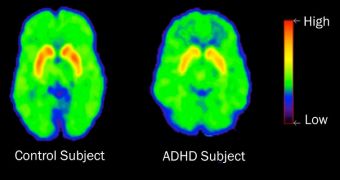Treating patients who suffer from ADHD may yield better results if cognitive behavior therapy (CBT) is included in the therapy, in addition to the standard medication.
The correlation is especially true for adult patients, say researchers at the Massachusetts General Hospital, in Boston, who conducted the new investigation.
They published their results in the August 25 issue of the esteemed scientific JAMA.
The team says that attention deficit hyperactivity disorder patients showed a marked improvement after experiencing CBT and getting ADHD medication in a combined format.
“Approximately 4.4 percent of adults in the United States have ADHD, which is a disorder characterized by impairing levels of inattention, hyperactivity, and impulsivity,” says the authors of the JAMA paper.
“Medications have been the primary treatment; however, many adults with ADHD cannot or will not take medications while others show a poor medication response,” they add.
The investigation was conducted because the research team, which was led by expert Steven A. Safren, PhD., ABPP, recognized the importance of developing new approached to treating ADHD efficiently.
“Furthermore, those considered responders to medications (i.e., 30 percent symptom reduction) may continue to experience significant and impairing symptoms. Thus, there is a need for alternative and next-step strategies,” the team writes in the journal entry.
The new investigation was conducted for a full year, on 86 adult patients. All test participants were already under medication, but they were still displaying clinical signs of ADHD at the beginning of the research effort.
The experts say that the cognitive behavioral therapy the patients were subjected to included psycho-education about ADHD.
Participants also learned how to think adaptively in crisis situation, how to prevent relapse of ADHD symptoms, how to organize and plan their action, how to determined when they are being distracted, and so on.
“This study suggests that cognitive behavioral therapy for ADHD in adults appears to be a useful and efficacious next step strategy for adults who show continued symptoms despite treatment with medication,” the researcher write.
“Generally, the treatment was well tolerated, with very low drop-out rates, and had positive and sustained effects on ADHD symptoms. Clinical application of these strategies to patients in need is encouraged,” they conclude.

 14 DAY TRIAL //
14 DAY TRIAL //